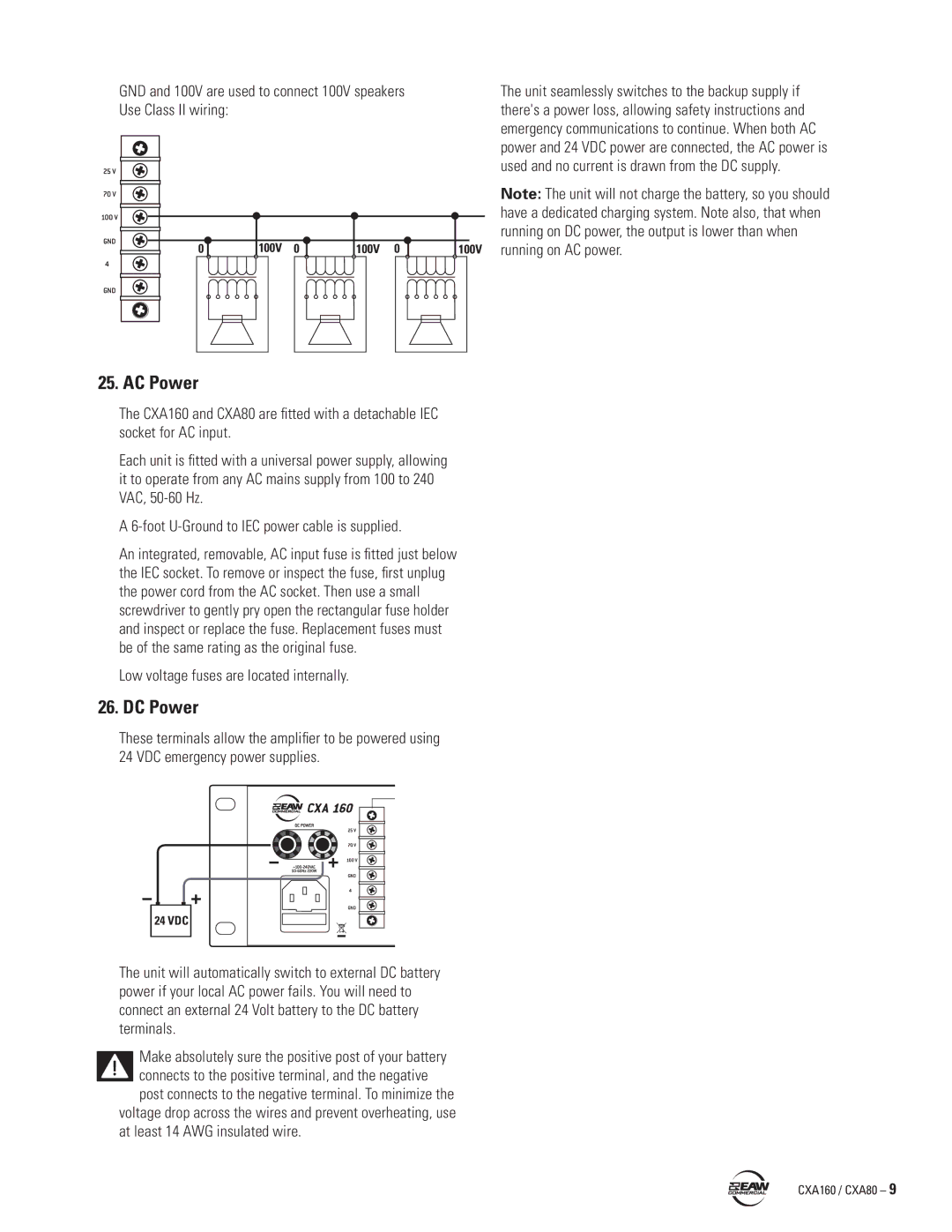
GND and 100V are used to connect 100V speakers Use Class II wiring:
0 | 100V | 0 | 100V | 0 |
The unit seamlessly switches to the backup supply if there's a power loss, allowing safety instructions and emergency communications to continue. When both AC power and 24 VDC power are connected, the AC power is used and no current is drawn from the DC supply.
Note: The unit will not charge the battery, so you should have a dedicated charging system. Note also, that when
running on DC power, the output is lower than when
100V running on AC power.
25. AC Power
The CXA160 and CXA80 are fitted with a detachable IEC socket for AC input.
Each unit is fitted with a universal power supply, allowing it to operate from any AC mains supply from 100 to 240 VAC,
A
An integrated, removable, AC input fuse is fitted just below the IEC socket. To remove or inspect the fuse, first unplug the power cord from the AC socket. Then use a small screwdriver to gently pry open the rectangular fuse holder and inspect or replace the fuse. Replacement fuses must be of the same rating as the original fuse.
Low voltage fuses are located internally.
26. DC Power
These terminals allow the amplifier to be powered using 24 VDC emergency power supplies.
24 VDC
The unit will automatically switch to external DC battery power if your local AC power fails. You will need to connect an external 24 Volt battery to the DC battery terminals.
Make absolutely sure the positive post of your battery connects to the positive terminal, and the negative
post connects to the negative terminal. To minimize the voltage drop across the wires and prevent overheating, use at least 14 AWG insulated wire.
CXA160 / CXA80 –
